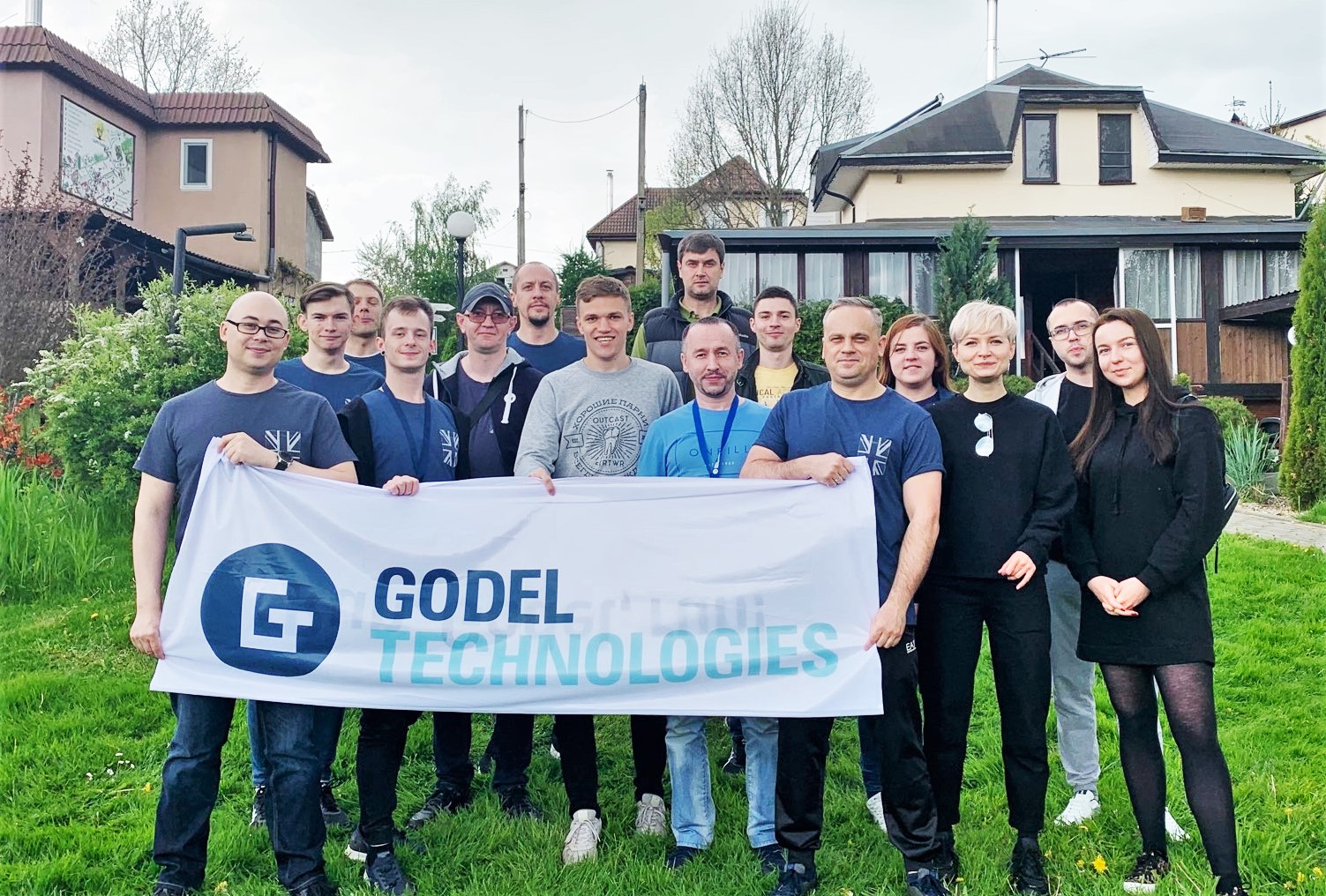
Siarhei Oshyn was recently appointed as Godel’s new Head of Data, having previously worked within the Data division as Lead Software Engineer. We sat down with Siarhei to discuss the journey that led to his exciting opportunity and what he hopes to achieve in his new role.
Congratulations Siarhei on your recent promotion. Can you tell us how you started working with data and technology?
In school, I actually wanted to be an accountant, but after not pursuing that path, I went to the Faculty of Computer Science instead. Immediately, I enjoyed working with computers and understanding computer science and algorithm. I especially liked working with data and making it work for me, I find it really interesting, more interesting than just writing code. At university, I participated in IS lab, Junior Data Scientist and built a system for machine translation between different languages. It was from then my passion for data and technology grew.
Talk us through your journey to Head of Data at Godel. How did you get the job?
In my time at Godel, I had already contributed a lot into developing the Data division, so this felt like a natural next step in my own personal development. We had seen a big increase for data demand on the market and there were already multiple ongoing engagements within the Data division where our Data Engineers continuously provide value to customers. Because of this, there was a need for a dedicated person who would look after the growing division to bring it forward.
Prior to my promotion to Head of Data, my experience saw me assist in building big data. I was already completing a lot of Head of Division activities such as participating in pre-sale meetings and helping to win new clients, and interviewing potential candidates to join our Data family. During this time, I provided my expertise to our teams to support delivery. My main goal as Head of Data is to successfully develop the division further.
Tell us about your team and the roles. What do they do and how do they work in Godel?
I am pleased to say we have expanded the teams across Belarus (outside Minsk in Grodno and Gomel) and outside Belarus (in Kyiv and Łódź). We now have 56 people on board and have grown 47% since January 2021 with 23 newcomers. I am delighted we continue to grow our teams successfully across many Godel locations.
We have the Godel Data Labs 2021 in AWS and Azure. These are education opportunities within the division. An engineer will learn how to build data pipelines and gain experience with Azure and AWS tools. Our weekly demos are based on client demand for specific skills and tools, something which has proven to be very popular.
Our Data Engineers have a ‘full stack’ mindset who can build pipelines, code and test (such as unit and integration). They are also responsible for the infrastructure and E2E feature development; from how to get the data and transform and load it, to how to present it and all the processes surrounding it. The Godel Data Labs prepare the engineers for this. An important factor to consider is, if you’re working with data, you need to know and understand the business context as well.

What do you think is bringing new people in?
They are interested in the fact that we work with brand new Cloud or Big Data technologies such as Amazon S3, Batch, Athena, Apache Spark, Apache Airflow or Azure Data Lake, Azure Databricks and Power BI. We hope to grow our teams with skilled people who want to develop their experience in data as we continue to work with new technologies.
Can you explain data engineering services from a sales perspective?
There is a lot of interest of our services from perspective clients. Companies are moving into a level of maturity where they need full access to the potential of their data to survive in a competitive sense. Therefore, the demand for highly skilled engineers has increased.
There is also lots of demand for consultancy. For example, we’ve worked with clients to build a data storage/BI solution. But before diving in, they performed a consultancy to understand requirements and the system, so they were on the same page.
Where do you see your team in 12 months?
The plan is growth! We aim to grow in numbers and continue to extend across Europe. We want to build a community in the division such as the Data Labs, and getting the team working together on projects and present their work, whilst improving their skills by learning from each other.
We also want to see the growth of expertise and quality through education and KT. It’s important we work towards improving data engineering, analytics expertise and skills in Azure and AWS. I hope to grow the capability in AI and Machine Learning solutions and improve the consultancy offering.
What do you predict the future holds in store for data?
I think predictive analytics will be the key to success when it comes to advisors for AI and Machine Learning. Imagine asking AWS, Alexa, «Alexa! How is my revenue?» and she answers, «Not good, but if you do ‘these things’ in the next quarter, your revenue will grow 50%». You can also use ML models for data pipeline management, management of the environment, and everything really, it will save a lot of time. For now, I see it as being a more ‘single service’. In the next five years, I predict a shift towards ‘general systems’ that consolidate all the data across the business.


Релоцировались? Теперь вы можете комментировать без верификации аккаунта.